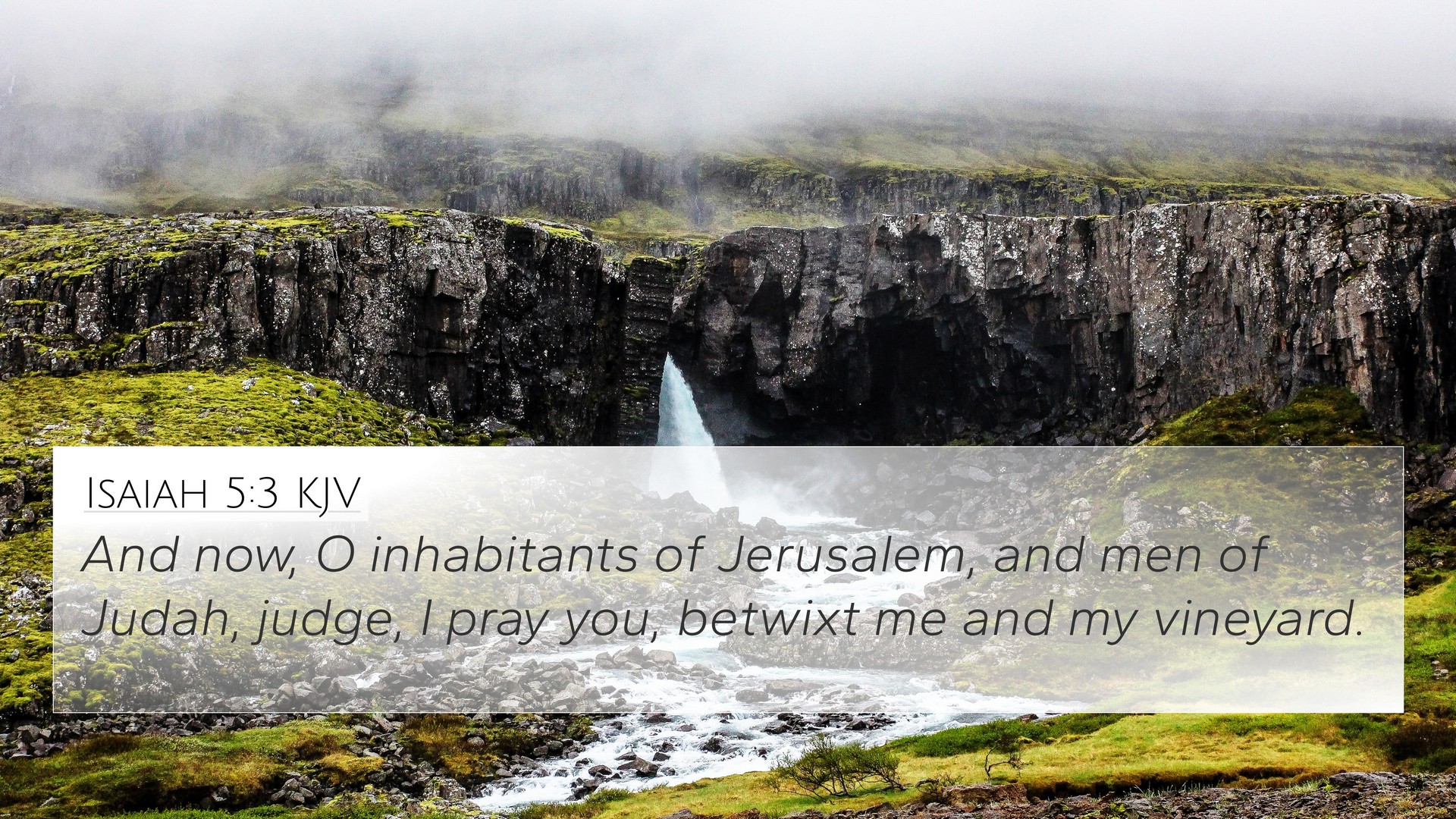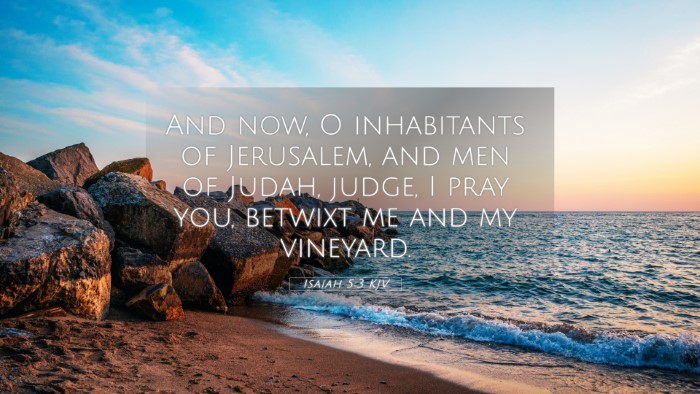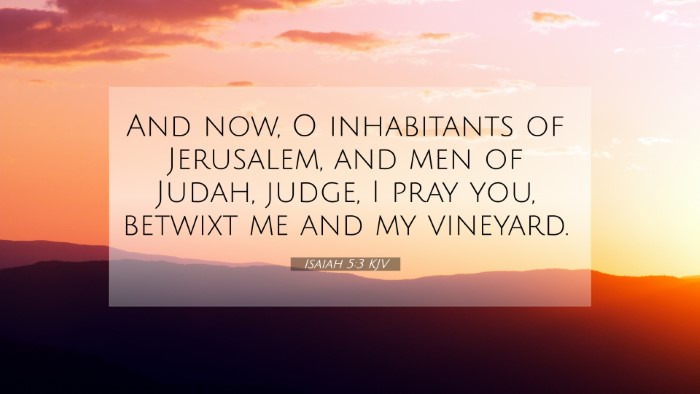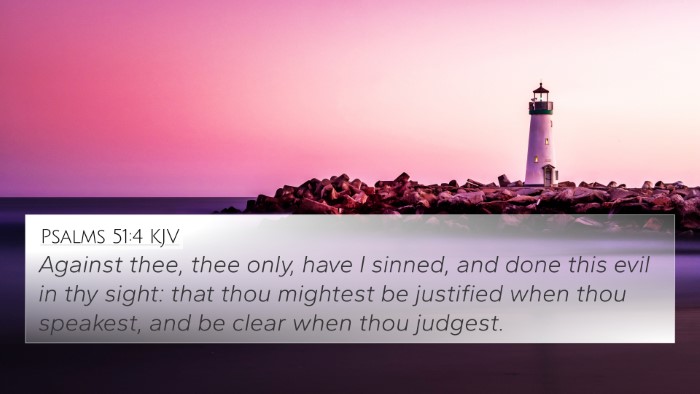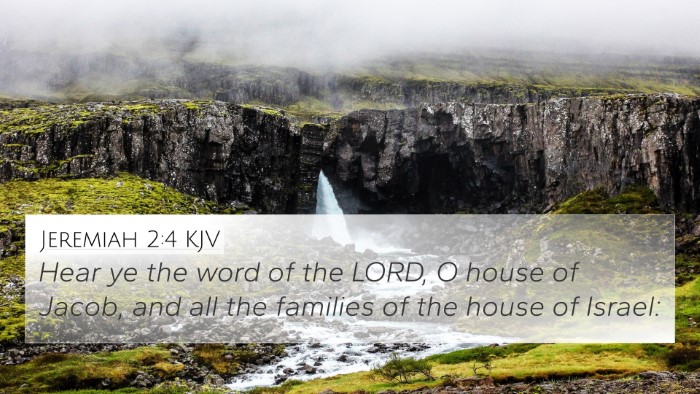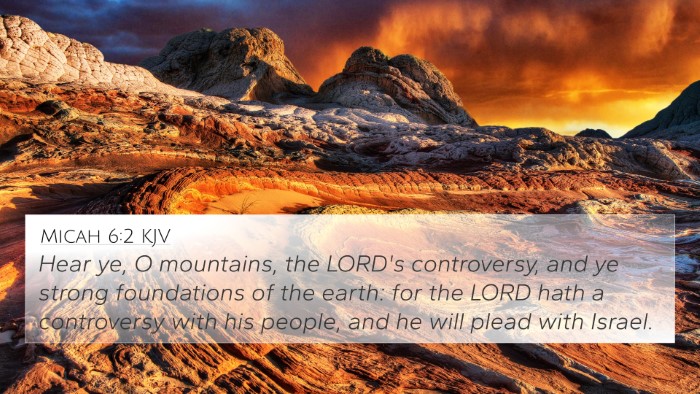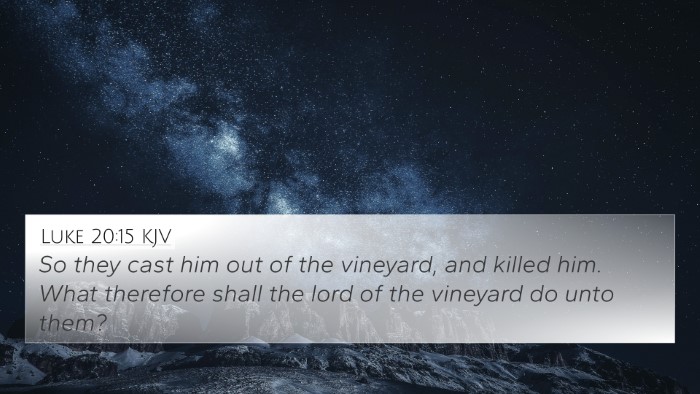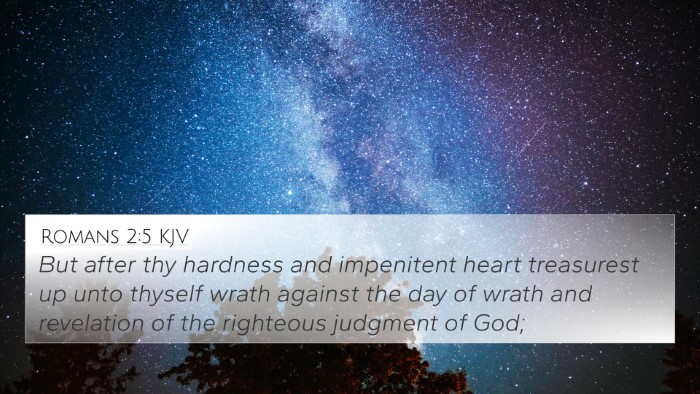Understanding Isaiah 5:3
Isaiah 5:3 calls for attention to the plight of the Lord's vineyard, symbolizing God's people. This verse serves as a cornerstone for understanding God’s relationship with Israel and emphasizes the need for accountability among His people.
Verse Text
Isaiah 5:3 (KJV): "And now, O inhabitants of Jerusalem, and men of Judah, judge, I pray you, between me and my vineyard."
Summary of Meaning
This verse presents a heartfelt plea from God to the people of Jerusalem and Judah to reflect on their relationship with Him and the expectation of their spiritual fruitfulness. The metaphor of the vineyard illustrates the care and investment God has made in His people, which in turn lays the groundwork for their accountability in fulfilling His expectations.
Commentary Insights
- Matthew Henry: Henry emphasizes that the vineyard represents the nation of Israel, nurtured by God yet failing to produce good fruit. He warns of the consequences when people do not judge rightly between their actions and God's expectations.
- Albert Barnes: Barnes elaborates on the implications of the vineyard's fruitfulness and the need for judgment. He highlights that God is inviting His people to evaluate their spiritual state—an exercise in introspection that can lead to repentance and restoration.
- Adam Clarke: Clarke discusses the prophetic nature of this verse, drawing attention to the long-standing relationship and expectations God has towards His chosen people. He underscores the importance of seeking God's perspective in assessing one's life and actions.
Bible Verse Cross-References
Understanding Isaiah 5:3 is further enriched by examining its connections with other scriptures:
- John 15:1-2: Jesus speaks of Himself as the true vine, indicating the importance of bearing fruit in the Christian life.
- Matthew 21:33-41: The parable of the wicked tenants echoes the theme of God’s expectations for His vineyard and the consequences of failing to produce good fruit.
- Jeremiah 2:21: God laments that He planted the people as a noble vine, yet they became wild and unfruitful, similar to the message in Isaiah 5.
- Romans 11:17-24: Paul discusses the inclusion of Gentiles into God’s vineyard, thus expanding upon the theme of fruitfulness to a broader audience.
- Hosea 10:1: Israel is described as a luxuriant vine that has borne fruit for themselves, which aligns with the warnings in Isaiah about responsibility.
- Ezekiel 15:1-6: The metaphor of the vine as worthlessness emphasizes the importance of fruitfulness in the sight of God.
- Luke 13:6-9: The parable of the barren fig tree reflects God's patience and the expectation of bearing fruit.
Thematic Bible Verse Connections
The themes in Isaiah 5:3 intersect with numerous biblical teachings about accountability, judgment, and the expectation of spiritual productivity.
- Accountability: The call for judgment in Isaiah prompts reflection on personal spiritual fruitfulness found throughout the Bible.
- Divine Care: God’s nurturing of His vineyard parallels His care as shown in Psalm 80:8-19, where Israel is compared to a vine brought out of Egypt.
- Judgment: Echoes of God's judgment resonate through passages like Romans 2:6, where individuals will be judged according to their deeds.
Conclusion
Isaiah 5:3 not only informs about God’s relationship with Israel but invites readers to reflect on their spiritual vitality and fruitfulness. By engaging with connected scriptures, one can better appreciate the depth of biblical teachings on accountability and divine expectation.
